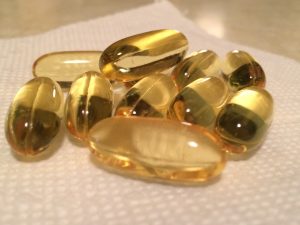 Thanksgiving is a wonderful time of year to reflect on the many things one is thankful for, but for some individuals it can be quite challenging. Individuals with a food allergy/sensitivity may struggle with figuring out what is safe to eat while trying to partake in the festivities. More can be done to accommodate when you are making the meal, but when you have less control over what meals are being planned it can pose quite the challenge.
Thanksgiving is a wonderful time of year to reflect on the many things one is thankful for, but for some individuals it can be quite challenging. Individuals with a food allergy/sensitivity may struggle with figuring out what is safe to eat while trying to partake in the festivities. More can be done to accommodate when you are making the meal, but when you have less control over what meals are being planned it can pose quite the challenge.
Thanksgiving at Home
As mentioned above, having a bit more control over the meal that is planned is beneficial due to being able to prevent cross contamination, lack of selection, and contamination period. Making sure to thoroughly clean items such as cutting boards, utensils and counters before working on safe food items is important to prevent cross contamination. Making a variety of items that are safe help those individuals who cannot have certain foods feel more relaxed table because there are more options and less stress over what can or cannot be eaten. It is also worth considering the question, “is thanksgiving all about the turkey?” Do you need the traditional foods eaten at thanksgiving or can you create a new tradition for your family? This concept in itself might help to take the stress away from the holiday.
Thanksgiving Away
Celebrating thanksgiving at another individual’s home poses many challenges to avoiding food sensitivities. Some planning before the event is important on your part. Offer to bring a couple of safe foods in the event that you may not be able to eat certain food items. This also provides an opportunity to spice up or add a bit of variety to the meal. Some food sensitivities can be brought to the attention of the host, so they can attempt to provide a couple of safe foods, but it is best to not push the issue and demand everything be safe for you to consume. Offer to help them to prepare a safe meal if they struggle with how to avoid certain foods that you may be sensitive to. Ultimately, focus on what you can eat rather than becoming discouraged at what you can’t eat, and focus on the time spent with your loved ones and the reason for the holiday.
Thanksgiving Meal Swaps
- Regular potatoes – sweet potatoes
- Stuffing – stuffing made with gluten-free breads
- Cranberry sauce – make cranberry sauce from scratch
- Gravy – use arrow root powder/starch/flour instead of regular flour to thicken (2tbsp of arrow root powder to 1 cup of liquid)
Have you benefited from reading this blog? Know someone that would benefit as well? Share, Like, Comment, or Tweet this article, and let me know what you think.
Some of the information provided above may not be appropriate for everyone, please consult with your doctor before trying any of the above. If you are interested in Naturopathic Medicine and wanting a different approach to your health care needs, contact Dr. Elisha Cook ND by calling 519-537-7058 and book your appointment today!


